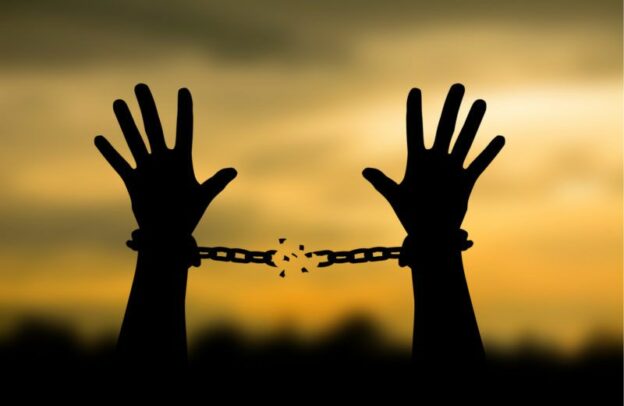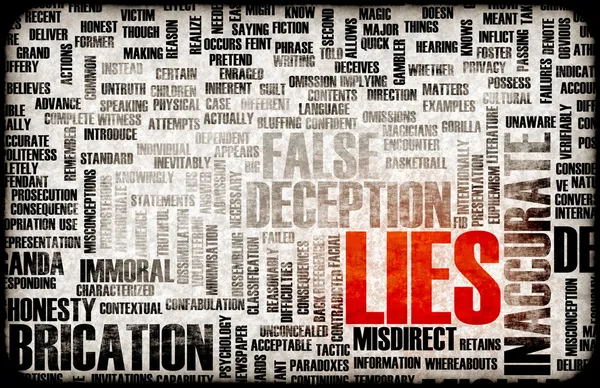Something in particular struck me about President Biden’s October 10 speech about Israel.
To read what it was, click here.

Something in particular struck me about President Biden’s October 10 speech about Israel.
To read what it was, click here.

There are railcars and there are railcars.
A document from a horrible moment in Holocaust history was recently discovered by a Tel Aviv University PhD candidate. You can read about it here.

Kol yimei chayecha – “All the days of your life” – is a phrase we first meet in the Torah when Hashem pronounces the fate of Adam after the sin of eating from the eitz hadaas: “Cursed is the ground because of you. Through suffering will you eat from it all the days of your life” (Beraishis 3:17).
The phrase recurs in a seemingly unrelated context, about the mitzvah of eating matzah on Pesach, in our parsha: “…so that you will remember the day you left Egypt all the days of your life” (Devarim 16:3).
That pasuk, cited in the Haggadah, elicited a novel thought from Rav Avrohom, the first Rebbe of Slonim: “When recounting Yetzias Mitzrayim, one should remember, too, ‘all the days’ of his own life – the miracles and wonders that Hashem performed for him throughout…”
The generation before mine, the one that came of age during the Second World War, could well relate to that idea. My father endured years of forced labor in Siberia, courtesy of the Soviet Union. My father-in-law was a veteran of several concentration camps, and suffered the deprivations and tortures for which they are infamous.
And, I know, on Pesach, thoughts of their experiences were in their minds. My father and his friends pocketing and then hiding a few wheat kernels here and there, to be secretly ground and baked in the middle of the night into matzos. My father-in-law, in a Dachau satellite camp, reciting with a friend parts of the Haggadah they knew by heart.
But the Slonimer Rebbe’s thought is appropriate for every life, even lives of relative calm and plenty like our own. Because, as a result of the sin of the eitz hadaas, adversity and tragedy entered the world and came to define all humans’ lives, to one or another extent. We all have experienced things that were daunting or worse, and from which we were saved. We may not have been liberated from a literal gulag or camp, but we are all, on one or another level, survivors.
And we need to consciously recall that fact, all the days of our lives.
© 2023 Rabbi Avi Shafran

Rosh Chodesh Nisan would seem a propitious time for a Kiddush Hashem. And one occurred this year, when a large group of Israeli anti-government protesters, mostly secular citizens aiming to “get in the face” of religious Jews, descended on Bnei Brak.
They likely wanted to express their anger at the fact that religious parties are part of the government coalition whose plans outrage them, but also to stoke locals’ anger in return. Many protesters wore helmets in anticipation of barrages of rocks or eggs. None, though, materialized, only a handful of young people who shot off harmless fireworks.
What did happen, though, was that some local residents set up food and drink stands, offering the protesters cholent, cookies and bottles of water, which many of the visitors gratefully accepted.
And, in one widely circulated (I prefer to avoid the word “viral” these days) video clip, some of the demonstrators seemed moved when the niggun “Sholem Aleichem” was played on loudspeakers. One older man was filmed taking off his helmet to wipe tears from his eyes as he mouthed along with the Shabbos night welcoming of malachei hashareis. Another protester excitedly accepted a sefer Torah from a resident and danced with it.
A resident who filmed videos of the unexpected happenings said that the man who removed his helmet and wept looked at her and said, “My father had love for every Jew and wanted everyone to be united. My father would roll over in his grave if he could see the hatred and conflicts among us.”
There are, to be sure and tragically, people who are so hardened in their secularism that they may seem impervious to reconsidering assumptions about Torah or those dedicated to it.
But the pinteleh Yid is always there, ready to be awoken.
After the Torah recounts the question that the Haggadah attributes to the rasha, it describes our ancestors as bowing down in thanksgiving about, Rashi says, the “news of the children.”
The Sheim MiShmuel, quoted in Eliyhu Ki Tov’s Haggadah, explains that, while resha’im in Mitzrayim perished, after yetzias Mitzrayim our ancestors were given the news that all of their descendants – no matter their actions as individuals – would still be part of the Klal. And that was what spurred their display of gratitude.
And the import of that news is that, no matter how far from their spiritual roots Jews wander, there is always a possibility of them finding – as so many have – a path home.
The seder is a particularly powerful puller of Jewish souls. Its memory is indelibly etched in many a less observant Jew’s soul.
My father, a”h, served as rov of a shul attended by both observant and non–observant Jews. One day a man came to Shacharis – to say Kaddish for a yahrtzeit – one of the few occasions we ever saw him – and received an aliyah.
He haltingly recited the brachah on the Torah but after “Asher bachar banu…” he hesitated. Then “mikol…” Then, to my immature amusement, “…haleylos shebechol haleylos anu ochlim…”
He was quickly corrected. But I realized that the man had just revealed that, distant as he was from Yiddishkeit, he remembered Mah Nishtana.
The distance between him and his heritage could not keep its words from tiptoeing in, unsummoned but determined. The seder was a part of him.
When living in Northern California and then in Rhode Island, I became acquainted with many Jewish families seemingly devoid of religious practice. I always made a point of asking whether they had a seder of any sort. Almost invariably, the answer was… yes, of course. Their sedarim may not have met halachic standards, but they were born of older sedarim that had, and that had left their seeds in the hearts of those present to germinate.
The sheer variety of bizarre “haggadahs” out there itself testifies to the Jewish compulsion to connect, no matter how tenuously, the “ism” du jour to Yetzias Mitzrayim. Forgetting that seminal event simply isn’t an option.
The birds of spring are singing. So are we Jews, singing our history at our sedarim. And even some who have fallen from the nest vaguely remember the song. We just need to refresh their memories.
© 2023 Ami Magazine

A piece I wrote about the uniqueness of the Holocaust was published at Religion News Service and can be read here.

If you aren’t familiar with the story of Roddie Edmonds, a Tennessee-born non-Jewish sergeant who fought in World War II and was captured by the Nazis, you can read it here.

Although I appreciate most humor, even jokes about Jews, I have always found comedian Alan King’s wry summary of Jewish holidays, “They tried to kill us, we won, let’s eat!” profoundly unfunny.
Not that we Jews don’t deserve a bit of mockery for our… enthusiasm… regarding things culinary. But the “They tried to kill us” introduction is too painfully true to be even part of a bon mot. Whether the “they” tried to kill us spiritually or physically, from ancient times in Egypt and Babylonia and Persia and Greece and the Roman Empire and the Crusades to more recent history including the Holocaust and Soviet Communism, there have been just so many they’s.
Mark Twain famously observed in 1898 – even before the the USSR and the Holocaust – that “Properly the Jew ought hardly to be heard of; but he is heard of, has always been heard of…
“He has made a marvelous fight in this world, in all the ages; and has done it with his hands tied behind him. He could be vain of himself, and be excused for it. The Egyptian, the Babylonian, and the Persian rose, filled the planet with sound and splendor, then faded to dream-stuff and passed away; the Greek and the Roman followed, and made a vast noise, and they are gone; other peoples have sprung up and held their torch high for a time, but it burned out, and they sit in twilight now, or have vanished.
“The Jew saw them all, beat them all, and is now what he always was, exhibiting no decadence, no infirmities of age, no weakening of his parts, no slowing of his energies, no dulling of his alert and aggressive mind. All things are mortal but the Jew; all other forces pass, but he remains. What is the secret of his immortality?”
The secret is Hashem, of course, and the merit of our forefathers. And our eternal survival is encapsulated in the parsha, in the words “I will exhaust my arrows” (Devarim 32:23). Which the Midrash, cited by Rashi, expands upon: “My arrows will come to an end but they [Klal Yisrael] will not.”
© 2022 Rabbi Avi Shafran

Think you’re smart? Well, let’s see. Can you spot the pattern in these quotes from public servants and other personalities about the FBI raid on former President Donald Trump’s Mar-a-Lago Club and the seizing of government documents therefrom?
Here goes:
Florida Senator Rick Scott: “The way our federal government has gone, it’s like what we have thought about the Gestapo…”
Arizona Representative Paul Gosar: “I will support a complete dismantling and elimination of the Democrat brown shirts known as the FBI.”
Florida Congressional candidate Lavern Spicer: “Biden’s FBI is no better than Hitler’s Gestapo…”
California Representative Mike Garcia: “This is literally tyranny of a majority right now that is acting more like a Third Reich than they are the United States…”
Colorado Representative Lauren Boebert: “Gestapo [expletive deleted].”
Former deputy assistant to the former president Sebastian Gorka: “A hatchet job that is Gestapo Stasi tactics.”
Former Trump White House strategist Steve Bannon: “[The FBI], the jackbooted American Gestapo, essentially kicked down the doors at Mar-a-Lago.”
Newsmax TV host and columnist Benny Johnson: “We live under a morally repugnant Gestapo regime.”
Member of the former president’s legal team Rudy Giuliani: “Big stormtroopers coming in and breaking down his apartment and breaking down his office.”
You did it! Congratulations! (Well, Mr. Gorka at least added the communist “Stasi” to his Nazi reference.)
Whatever one might feel about the FBI raid on Mr. Trump’s club and residence, though, whether one feels it was a responsible and necessary enforcement of the law or an unwarranted persecution of a reviled enemy, one thing it wasn’t was the equivalent on any level of the Nazis’ brutal treatment and terrorization of Jews and others before and during the Second World War.
There can be no denying that Mr. Trump is deeply disliked by Democrats, or that he has been subject to an inordinate number of investigations, including two impeachments. And no denying that insinuations that he intended to sell state secrets to highest-bidder foreign entities are wild and pernicious speculations.
But no denying, either, that, after a judge weighed evidence and issued a search warrant, 33 boxes of documents belonging to the government, including some 100 highly classified ones, were found in the former president’s Florida home. Even after Mr. Trump’s lawyers claimed that all such material had been returned to the National Archives.
And no denying that no one tortured or beat Mr. Trump (at least not literally) and no one seized him and sent him to a concentration camp. And that Mar-a-Lago isn’t quite the Frank family secret annex.
As one social media commentator, Tim Byers, responding on Twitter to Ms. Spicer, put it: “Yep. Retrieving stolen classified documents is exactly like executing millions of Jews. Congratulations, you nailed the comparison.”
Invoking Nazi nomenclature isn’t even limited to supporters of the former president. The man who bested him in the 2020 election, President Biden, recently decried the “extreme MAGA philosophy” to a group of donors, and went on, gingerly but strikingly, to say: “It’s not just Trump. It’s the entire philosophy… It’s like semi-fascism.”
Okay, not all fascists are Nazis, and the Nazis weren’t exactly “semi” anything. But still.
There may actually be something positive to note – at least for the incurably starry-eyed among us – about all the Third Reich comparisons. Namely, that those seeking to utterly vilify their opponents, grasping for the very worst insult they can find, end up choosing Third Reich-flavored slurs.
But the bottom line, for the sake of history if nothing else, has to be that such overheated rhetoric insults the memory of those who suffered things immeasurably worse than a legally justified pursuit of evidence in the investigation of a crime – or a politically motivated attempt to harass a loathed enemy – whatever your preferred description.
With fewer human links than ever to the events of 1933-1945 in Europe and increasing attempts by true enemies of truth to deny essential facts about those years, it is especially urgent these days to not cheapen words and phrases like “Gestapo,” “storm troopers” and “fascism.”
Because they all have meanings, all-too-real ones.

Fact-free fantasies are all the rage
Shameless charlatans and flagrant fabulists are nothing new. But they seem to be proliferating rather wildly these days.
In only the latest of a slew of recent such scams, a man was just sentenced to five years in prison after raising $400,000 in a GoFundMe campaign, ostensibly for a homeless veteran. He and his companion spent much of the money on gambling, a BMW, a trip to Las Vegas, a helicopter ride over the Grand Canyon and designer handbags.
Then there’s Alex Jones, the conspiracy theorist radio host and operator of the website InfoWars, who, after a Texas jury’s ruling this month, must pay $45.2 million in punitive damages, in addition to $4.1 million in compensatory ones for spreading the lie that the 2012 Sandy Hook Elementary School shooting was a hoax “staged” by the government so it could “go after our guns,” and that none of the 20 children killed in that attack had actually died.
He called those all-too-real childrens’ parents, who had to identify and bury the bullet-riddled bodies of their young ones, “crisis actors,” resulting in their being retraumatized, and harassed and hounded by some of Jones’ faithful followers.
Previously, the popular fabler endorsed the “Pizzagate theory”—that Democratic Party operatives ran a global child-trafficking ring out of a DC pizzeria—and implied that a yogurt company was linked to an assault case and helped spread tuberculosis, both of which fact-free fantasies he was later forced to apologize for promoting.
Apparently inspired by Mr. Jones, Georgia Representative Marjorie Taylor Greene suggested that the man who opened fire on a Fourth of July parade in Highland Park, Illinois, this year, killing six, might have been part of an orchestrated effort to persuade Republicans to support gun control measures.
Millions of Americans believe, without evidence, that the 2020 presidential election was “stolen”; and millions, too (though there’s likely considerable overlap), that the 9/11 attacks were perpetrated by US government agents. Among the latter group is Michael Peroutka, the Republican Party nominee for Maryland attorney general.
According to a new study by UNESCO, approximately half the public content related to the Holocaust on the Telegram messaging service denies or distorts facts about the extermination of millions of Europe’s Jews.
And, with each year leaving us with fewer human witnesses to that evil, the noxious weeds of Holocaust denial are bound to infest the history garden.
Poised, too, to become a powerful engine further impelling our era of lies are “deepfakes.”
Those are videos produced with special software that makes it seem that an identifiable person is saying or doing something he or she has, well, neither said nor done. Photoshop on steroids.
The software, readily available and being constantly refined, can alter the words or gestures of a politician or other public figure, yielding the very fakest of fake news.
In 2019, Senator Marco Rubio, a member of the Senate Intelligence Committee, warned that “America’s enemies are already using fake images to sow discontent and divide us. Now imagine the power of a video that appears to show stolen ballots, salacious comments from a political leader, or innocent civilians killed in conflict abroad.”
According to a report released last week by technology company VMware, attacks using face- and voice-altering technology jumped 13% last year.
“Deepfakes in cyberattacks aren’t coming,” the company’s Rick McElroy said in a statement. “They’re already here.”
In March, for one example, a video posted to social media appeared to show Ukrainian President Volodymyr Zelensky directing his soldiers to surrender to Russian forces. It was a deepfake.
The 24-hour news cycle and expansion of social media platforms only compound the problem. “A lie,” as the saying often attributed to Mark Twain goes, “can travel halfway around the world while the truth is still putting on its shoes.” Today, it’s gone all the way around the world before truth even finds its shoes.
So there is ample cause for despair. Lies upon lies exposed, many more still claiming the gullible and a likely empowering of falsehood-promotion in the not-distant future.
But cause, too, perhaps, of hope.
Because Chazal (Sotah 49b) foretold that ha’emes tehei ne’ederes, “truth will go missing” one day: When the “footsteps of Moshiach” are approaching.
(c) 2022 Ami Magazine

You might not recognize the name Nancy Patricia D’Alesandro, but you surely know the lady by her current name: Nancy Pelosi.
Her original surname, though, resonates with some of us Jewish “Bawlemorians.” If you’re interested in knowing why, click here.